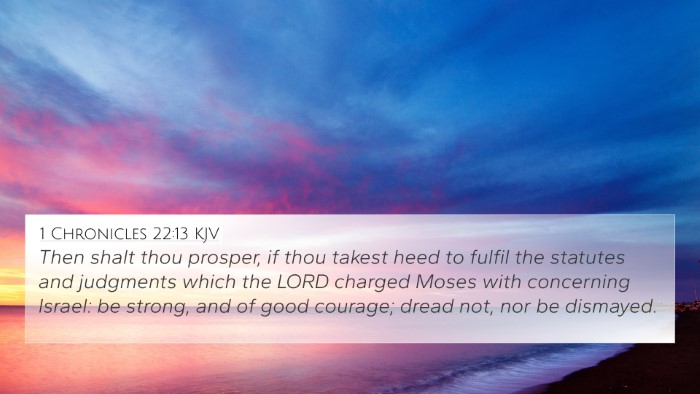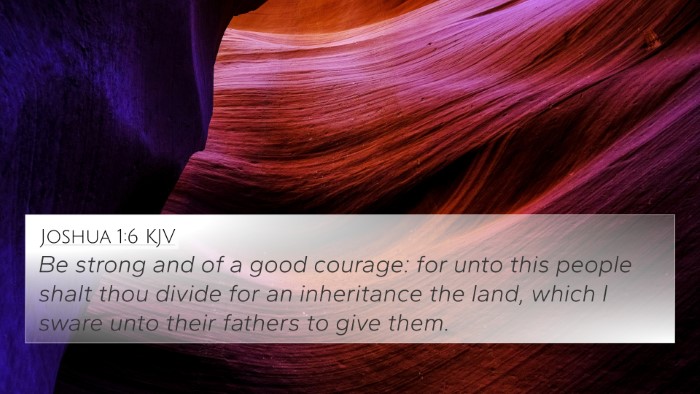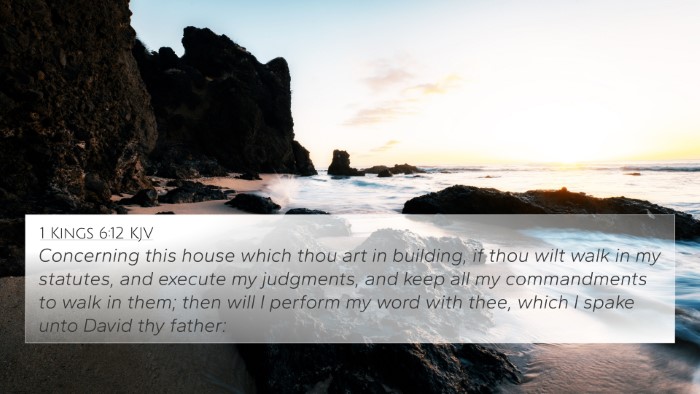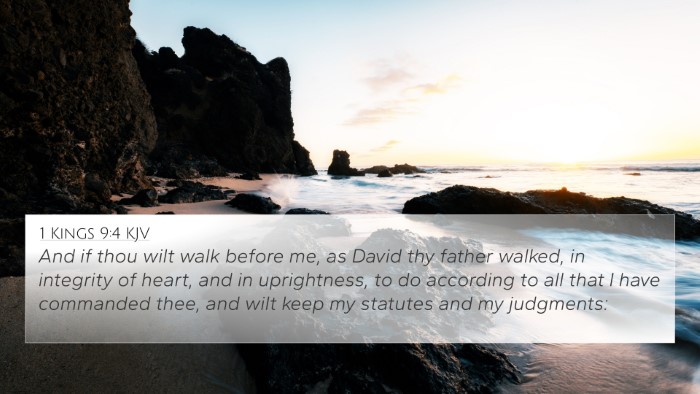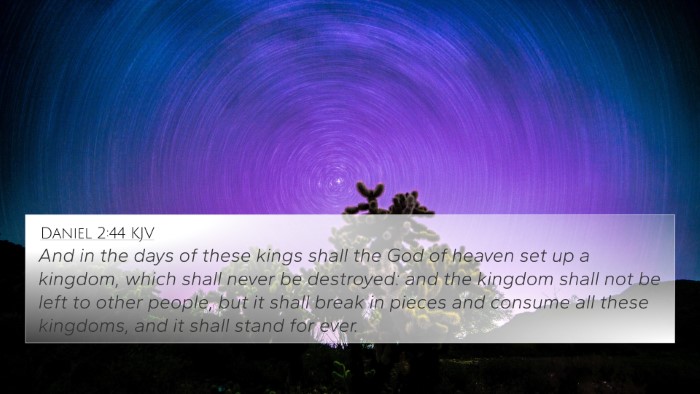Understanding 1 Chronicles 28:7
Verse: 1 Chronicles 28:7 - "Moreover, I will establish his kingdom forever, if he be constant to do my commandments and my judgments, as at this day."
Summary of Meaning
1 Chronicles 28:7 emphasizes the conditional promise made by God regarding the establishment of King Solomon's kingdom. The promise hinges on Solomon's adherence to God's commandments and judgments. This verse shapes our understanding of God's covenant and His expectations from those in leadership.
Key Insights from Commentaries
- Matthew Henry's Commentary:
Henry stresses that God's promises are often conditional, highlighting the importance of obedience and faithfulness. He expresses that God’s assurance to establish the kingdom is a reflection of His grace and also a stern reminder of the need for Solomon to maintain steady faith in God's commands.
- Albert Barnes' Notes:
Barnes interprets this verse as God's affirmation of Solomon’s potential success and the lasting nature of his reign, provided that he remains true to divine law. He notes that the word "if" indicates a necessary condition, suggesting a reciprocal relationship between God's promises and human responsibility.
- Adam Clarke's Commentary:
Clarke elaborates on the significance of the term “kingdom forever” as it relates to both the earthly and spiritual reigns. He underlines Solomon's unique position and the expectation that his obedience would reflect in the prosperity of the nation and the temple he was to build for God.
Cross-References
This verse can be linked to several significant scriptures that reinforce its themes:
- 2 Samuel 7:16: God's promise to establish David's house forever, analogous to the continuity promised to Solomon.
- 1 Kings 2:3: An exhortation to Solomon on the importance of following God's commandments as vital for success.
- Deuteronomy 28:1-14: Outlining blessings for obedience to God’s commandments, echoing the terms set in 1 Chronicles 28:7.
- 1 Chronicles 22:13: The importance of keeping God's commands as essential for David and Solomon’s leadership.
- Proverbs 3:1-2: The call for one’s heart to keep God's teachings as a means of life and prosperity.
- 2 Chronicles 7:17-18: God's reiterated promise to Solomon under the condition of obedience to His laws.
- Matthew 6:33: The principle of prioritizing God’s kingdom and righteousness resonates with Solomon’s duty.
- Romans 11:29: The irrevocable nature of God’s gifts and calling, reflecting on the security of His promises.
- John 15:10: Remaining in Christ's love through obedience, paralleling the required faithfulness of Solomon.
- Revelation 3:21: The reward for overcoming (similar to Solomon’s conditional promise for success) correlates with enduring faithfulness.
Connecting Themes and Inter-Biblical Dialogue
This verse opens up discussions on the nature of God’s covenants, the requirements for divine favor, and the everlasting impact of obedience across biblical narratives. It sets a foundation for exploring:
- How 1 Chronicles 28:7 connects God's promises to the obedience theme recognized throughout both the Old and New Testaments.
- The relationship between God’s covenant with David and its implications for Solomon and subsequent generations.
- Ways in which God's conditional promises parallel New Testament teachings on spiritual inheritance and conditional love.
The verse serves as a potent reminder for believers today that the blessings of God are often tied to our faithfulness and obedience to His Word. The emphasis on Solomon's need for constancy in following God's commandments speaks to the broader biblical principle of faithfulness leading to fulfillment of God's promises.



